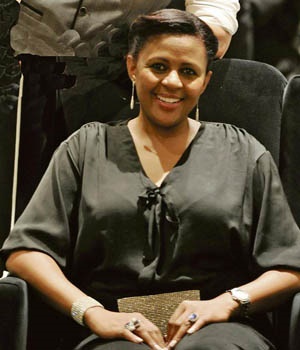
As we go on air tonight with the final episode for the year of Our Perfect Wedding, it seems fitting to reflect on the content and context of reality TV, particularly since I’ve had some time to process the events of Sunday, November 29, this year.
On that day, an episode ignited outrage when the groom-to-be stated that he had begun “dating” his fiancée when she was 14 and he was 28. Given her age, his behaviour was totally wrong.
Unfortunately, so too were the choices of the team working on the episode. Focused on telling the story of a man who has since become a pastor, they decided to prioritise his current circumstances. In doing so, it appeared to all that Our Perfect Wedding was making light of his dark past.
It was an awful error and a clear failing.
For that, I’m deeply sorry. My company, Connect TV, and Mzansi Magic have also apologised – that episode should never have been aired.
The only positive thing to emerge from the resulting outcry was that an issue whose resolution is vital to our society’s growth was again highlighted, thanks to the collective efforts of those who had protested.
The young and the vulnerable, who are often the tragic victims of abuse in this country, must be protected. For those of us who work in TV, it is our responsibility to ensure that we do not set back the achievement of this vital goal – at all, ever.
Since that day, I’ve thought a lot about the challenges ahead. As a producer who has worked on many programmes, I’ve realised that it’s a complex genre, which is further complicated by the fact that there will always be debates about its real motives.
For some it’s just trash TV, seen as exploitative and vulgar to gain ratings. For others, it shows our world as it really is – whether we are comfortable with seeing it, or not.
So what is our job as producers? To be careful with whose lives we profile? To be vigilant with what we screen? To improve how we produce these shows? Yes, yes and absolutely yes. That, now more than ever, is clear to us.
But what I think we must clarify better is that there’s more than one kind of reality TV – it also has subcategories. We make entertainment reality and engagement reality.
Programmes like Diski Divas and Date My Family are entertainment reality, where audiences follow the lives of those who have volunteered to put theirs in the spotlight to see how they live, how they love, what they dream, and what they seek.
Then there is engagement reality TV. That’s when people write in, seeking help to improve their lives.
In Utatakho, we tackle the heart-wrenching subject of absentee fathers, helping those who are searching for their genetic identity to progress in their journey. In Please Step In, we intervene in situations that have frustrated our viewers with seemingly no end in sight.
For us, there are also shows that cross both categories – shows like Our Perfect Wedding and Bootcamp Mzansi. These are entertainment shows, but also engagement shows. They speak to the pride that people have in making a better version of themselves, or sharing their most special moments.
It’s possibly the most rigorous type of reality TV because it merges two completely different elements – entertainment and engagement.
Audiences demand to be entertained, but for participants, it’s about engaging with their futures.
Both want us in their lives, so we must try to give them the experiences they can relate to. Then, they must carry the narrative forward.
Of course, when audiences add their own interpretation to what they see, we are criticised for making people the object of ridicule. Simply because, on social-media platforms, some viewers mock what they’ve seen. We don’t encourage this, but we are chastised for it. The truth is that we package the programme, intent on making TV that is relevant, and the public decides how it will react.
I am not writing to excuse the inexcusable. I’m writing to explain more about what we do because while we sometimes stumble, we won’t stop making reality TV. If we do, if we let our failures crush our attempts, then we miss the opportunity of creating television that stimulates, confronts and challenges.
In good moments, reality TV can drive change, foster understanding and create joy.
I know we must be better – and we will be. All I ask is that you do not let our mistakes define our contributions, which are valuable in so many ways.
Kumalo is head of Connect TV
Is reality TV a positive or negative genre?
SMS your thoughts to 35697 using the keyword REALITY. SMSes cost R1.50.
Please include your name and province
Tweet us @City_Press
Facebook us at City Press




 Publications
Publications
 Partners
Partners








